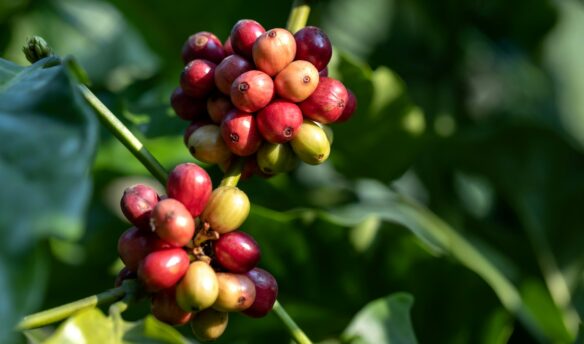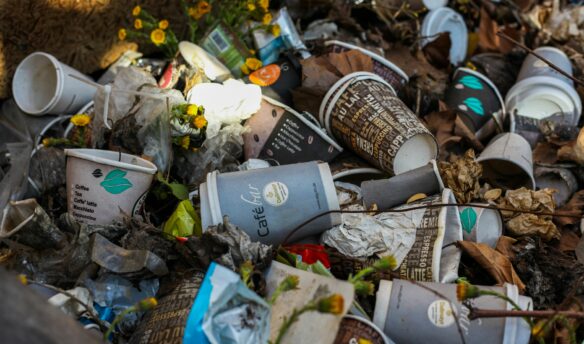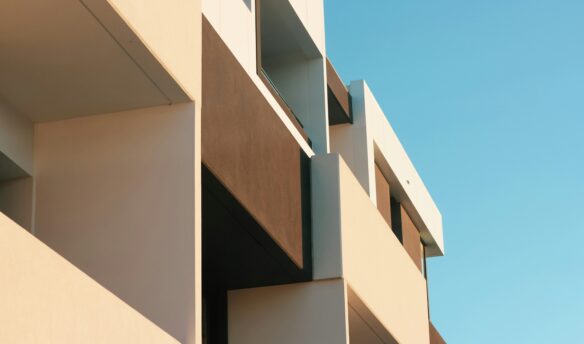No mentions of coffee in Colombia’s new tax reform bill, a seaweed-covered ball, and a new program is trying to revitalize El Salvador’s farming industry.
Let’s chat about this week’s coffee news.
‘Colombia’s Coffee Sector Pushes Back on Tax Reform Bill’ – via STiR Magazine
A new tax code proposed by Colombia’s new president, Gustavo Petro, has sparked controversy amongst the country’s coffee growers. Colombia’s National Federation of Coffee Growers (FNC) has asked for revisions to the tax reform bill, saying that the changes put forth by the president will hurt coffee producers.
The bill takes a broad approach to the agricultural sector without specifically mentioning coffee, an industry that accounts for 7-8% of the country’s GDP, according to the World Bank. Critics say the bill includes new subsidies and tax provisions that will disproportionately affect small coffee farmers while benefiting industrial agriculture.
One section in particular, which repeals an existing provision that allows coffee growers to write off nearly half their gross income as labor costs, has been specifically targeted by the FNC. The organization says this new provision will greatly reduce farmers’ incomes. Political opponents have called the bill regressive: Senator Carlos Abraham Jiménez of the left-wing Cambio Radical (Radical Change) Party said, “This reform, by removing the 40% deduction of gross income to cover coffee growers’ labor costs, equals higher taxes on those least able to pay them.”
Gustavo Petro is Colombia’s first-ever president from a left-of-center party. He has pledged to help the working and middle classes and focus on stimulating agricultural development. Critics of the tax reforms hope that the government will revise the bill with more input from the coffee sector.
‘From New Swiss Brand CoffeeB, the Coffee Ball Has Dropped’ – via Daily Coffee News
Keurig and Nespresso have long dominated the coffee pod market, but a new challenger has emerged: seaweed-coated coffee balls. The CoffeeB Globe is a new brewing system from Swiss retail giant Migros, and is being pitched as a more ecological alternative to aluminum and plastic capsules.
The Globe is a brewer that utilizes spheres of pre-ground coffee with a protective layer derived from seaweed. The company describes the layer as tasteless and colorless while maintaining freshness and structural integrity. The Coffee Balls are brewed individually, using technology designed by CoffeeB over the past five years. “It is a completely different system to existing coffee capsules,” CoffeeB’s Caroline Siefarth told Daily Coffee News.
The launch, which will begin in Switzerland and France and expand to Germany next year (no word yet on a US launch), emphasizes the device’s eco-credentials. The Globe is built “partly…from recycled materials,” and has modular features to encourage repair rather than replacement, while the balls themselves break down easily in home composts. The coffee used is also billed as “either Rainforest Alliance, USDA Organic and/or Fairtrade certified.”
Frank Wilde, head of CoffeeB and a former Nespresso executive, claims his company’s system will end the need for pod-based coffee brewers altogether. “The reason is simple: CoffeeB solves the capsule waste problem, and tastes just as good as traditional capsule coffee.”
Of course, if we were really serious about sustainability, we’d eliminate pod-based machines altogether instead of introducing yet another plastic-heavy device. But that’s not the way this works.
More News
‘Colombia’s The Green Coffee Company Launches $100m Funding Round’ – via World Coffee Portal
‘World Coffee Producers Forum Coming to Rwanda in 2023’ – via Daily Coffee News
‘Brazilian Scientists Develop Green Coffee Sorting Method Using Multispectral Imaging’ – via Sprudge
‘Nearly 40% of UK Hospitality Businesses Facing Skilled Worker Shortage’ – via World Coffee Portal
‘Study Backed by Qima and Lavazza Examines Yemeni Coffee Names’ – via Daily Coffee News
‘For New and Established Coffee Brands, Ethics Are at the Forefront’ – via VinePair
‘Seven Pounds Of Coffee Just Sold For $42,000’ – via Sprudge
The Week in Coffee Unionizing
- Starbucks will reinstate the fired Memphis Seven after losing an appeal. The company had asked to overturn last month’s ruling in favor of the seven union organizers, but a three-judge panel for the 6th U.S. Circuit Court of Appeals sided with the lower court. Starbucks’ challenge “did not show a likelihood of success,” the ruling stated.
- Workers at Heine Brothers’ Coffee in Louisville, KY, have voted to unionize. Upwards of 221 baristas from the chain’s 17 locations took part in the vote, and the ‘yes’ contingent won “with a significant majority,” according to a press release from union organizers. Heine Brothers opposes unionization, but said it would respect the decision.
- On Saturday, September 3rd, employees at Serenity Coffee and Kava Bar in Tallahassee, FL, went on strike to demand higher wages. According to a statement by Serenity Bartenders United, the (as yet unrecognized) union representing the workers, baristas are paid $6.98, the minimum wage for servers in Florida. On Labor Day, the striking workers held a rally outside the cafe. The next day, the owner announced the business’ permanent closure on social media—and told staff via text message, according to the statement.
Coffee and the Climate Crisis
330,000 tons of coffee were exported from El Salvador in 2000. In 2018, according to the country’s Ministry of Agriculture and Livestock, that number dropped to 74,800 tons. This isn’t the only arena that El Salvador has experienced losses: during the 2017/18 crop, the coffee industry accounted for 45,000 jobs, a drop of 62% from the 2000 number.
The decrease in both coffee production and industry jobs is primarily due to climate change, Ricardo Esmahan of the Association of Beneficiaries and Exporters of Coffee in El Salvador (ABECAFE) told Global Coffee Report. The drop in export was due to roya, or coffee rust, which was able to propagate due to climate disasters in the country. “It was a perfect storm,” says Esmahan. “We had a tropical storm just before the crop, then we have a hot climate made worse by climate change… production went down but it has never recovered.”
In response, the Salvadoran government launched a program called Strengthening the Climate Change Resilience in El Salvador’s Coffee Forests, modeled on Colombia’s Castillo renovation campaign of the mid-2000s and Honduras’ Lempira program of the early 2010s. These initiatives sought to combat the growing problem of coffee leaf rust by investing in new, more robust and rust-resistant cultivars—although the Lempira variety widely planted in Honduras was shown to be susceptible to rust in 2017.
At a projected cost of $377 million, the government hopes the program will transform the industry and build a sustainable future for coffee in El Salvador. Plans include:
- Planting 24 million rust-resistant plants over the next five years
- Funding improvements in agroforestry systems
- Growing more coffee under shade
- Initiatives to incentivize women and young people to re-enter the coffee sector
However, funding is an issue. The International Development Bank (IDB) will provide a $45 million loan, but that still leaves a massive gap to fully fund the program.
“We do have our doubts about the take-up because many producers have stopped growing coffee altogether because they went broke from the years of low international prices,” Esmahan said.
However, he remains optimistic: “The coffee sector used to be the backbone of the Salvadoran economy. [It’s] not anymore, but we could be again hopefully.”
Beyond the Headlines: Starbucks Edition
‘Does Anyone Drink Hot Coffee Anymore?’ by Gina Cherelus
‘How Starbucks Became an American Punch Bag’ by Brooke Masters
‘You Might Think Starbucks is a ‘Progressive’ Company. You’d be Wrong’ by Hamilton Nolan
Coffee News Club is written by Fionn Pooler and the Fresh Cup editorial team.
















